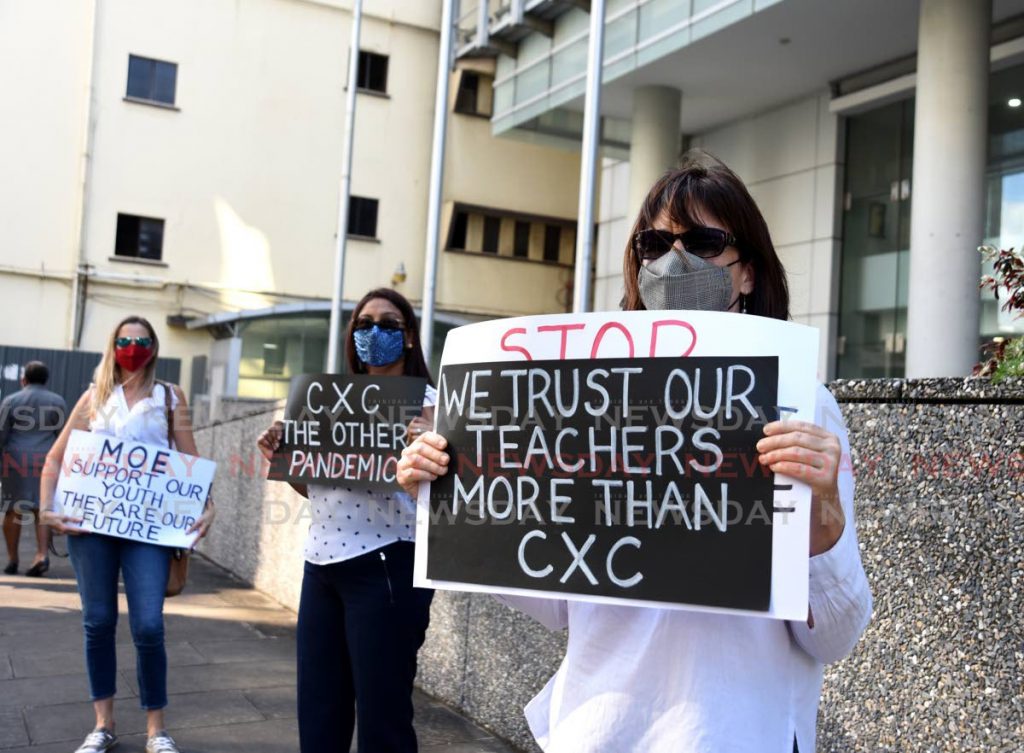TTUTA slams CXC model, calls for restructuring

The Caribbean Examinations Council (CXC) came under heavy criticism as regional concerns loomed over the education system in the midst of the covid19 pandemic.
On Saturday, a regional discussion – Post-covid education in the Caribbean – was held virtually to address the way forward given the circumstances of the current landscape.
Many students who sat the Caribbean Secondary Education Certificate (CSEC) and Caribbean Advanced Proficiency Examination (CAPE) examinations last year, amid heightened covid19 restrictions in TT and the region, queried their results citing poor and unfair grading by the regional examining body.
TT Unified Teachers' Association (TTUTA) president Antonia De Freitas said CXC needed to re-evaluate and restructure the manner in which the examinations were conducted.
The Caribbean Union for Teachers, she said, had several meetings with CXC on the matter, but the council refused to deviate from the way they administered the examinations.
“Notwithstanding our efforts, our arguments, our cajoling, CXC has a particular path that they want to travel, and they seem to feel that this was the best thing to do.
“A lot of the advocacy that the teachers’ unions tried to put forward was ignored at the level of CXC, but we had support from a number of the territories and their governments.”
She added that the modifications for this year poses disadvantages for students who must produce school-based assessments (SBAs), since they have not been able to utilise labs and classrooms space during the term to execute such assessments.
“This has implications for the preparedness of students for the examinations. Mindful of the fact that this is the cohort that was in form four and who were not necessarily have had the exposure.
“We have made some recommendations to make the process easier for the students and teachers, and we do not want the students to be unduly stressed.”
De Freitas said CXC has to consider that their strategic plan must include the use of technology and the Caricom mandate which allowed for human development.
“If we utilise indigenous technologies then not only would CXC have to conform or fall in line with what Caricom sees as the integral element of its human resource development strategy, but it will have to make those adjustments.”
She called on stakeholders to advocate to their respective ministries to integrate, develop indigenous technologies to fulfill the human resource development plan.
“This means CXC work will have to be adjusted and our students will be benefitting rather than being stressed," she said.
CXC exams this year has been pushed to start in June. It previously started at the end of April for some subjects.
The webinar which was held in commemoration of International Education Day also highlighted the need for collaboration among stakeholders, private/public sector partnership, addressing the concerns of inequality and inequity and the digital divide.


Comments
"TTUTA slams CXC model, calls for restructuring"